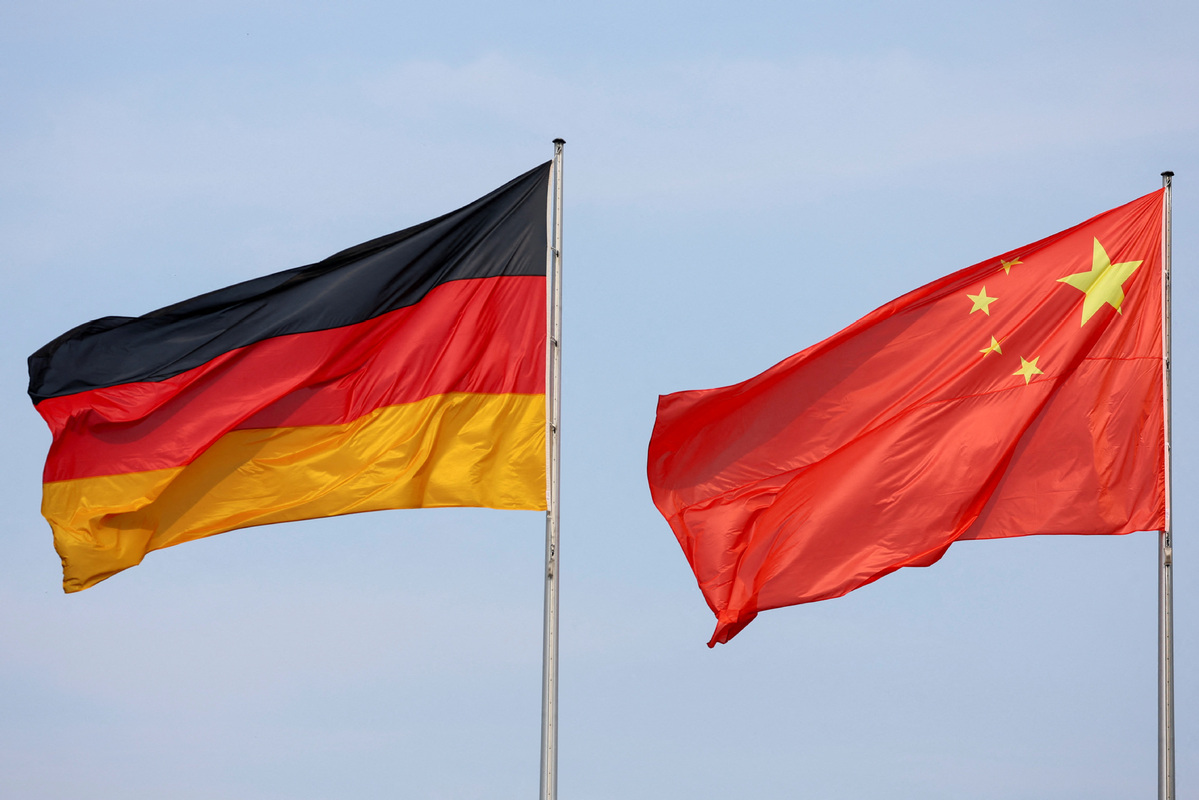German vote of confidence turns 'de-risking' narrative into a joke


Some in Western countries who expect to see decoupling happening between the West and China get very excited when they see Western companies leaving, while being unhappy when the opposite happens.
But enterprises are known to choose their investment destinations carefully, they opt for places where they can make money easily, and this is not affected by political factors.
According to a recent survey on business confidence released by the German Chamber of Commerce in China, 91 percent of German companies surveyed said they will continue to stay in the Chinese market, and more than half of the entities surveyed plan to increase investment in the next two years. The results of the survey have, however, unnerved some European media outlets, with some describing the relationship between German companies and the Chinese market as a manifestation of the "Stockholm syndrome".
Why are they so sensitive about German companies investing in China, and is it abnormal for German companies that have made money in China to be optimistic about the prospects of the Chinese market? It is very likely that those who have been hyping up the "foreign capital withdrawal from China "theory and want to see "de-risking" happen are afraid of being proved wrong.
Enterprises always make investment decisions based on the cost to return ratio, and enterprises that use real money to make investment choices are in the best position to tell what the Chinese market actually looks like.
That more than 500 German companies have settled in Taicang, a city in Jiangsu province neighboring Shanghai; Volkswagen has invested 2.5 billion euros ($2.75 billion) to expand its production and innovation center in Hefei, Anhui province; and BMW has invested 2.5 billion euros to expand its Shenyang plant in Northeast China's Liaoning province, shows their vote of confidence in China's overall business environment.
The increased investment confidence in China by German companies tellingly shows they are optimistic about not only the Chinese market today, but also its prospects tomorrow. A 2024 global foreign direct investment confidence index released by Kearney shows that China has jumped to third place from the seventh last year, ranking first in the ranking of emerging markets.
China's ongoing efforts for high-quality development and the full opening-up of its manufacturing and service sectors are creating new opportunities for foreign investment in China. Time will again prove that the choice of foreign companies, including German ones, for expanded investment in the Chinese market is wise and will be lucrative.
The choice of German companies is also a reminder to some in Europe that their "de-risking" narrative can only turn out to be a laughingstock.
































